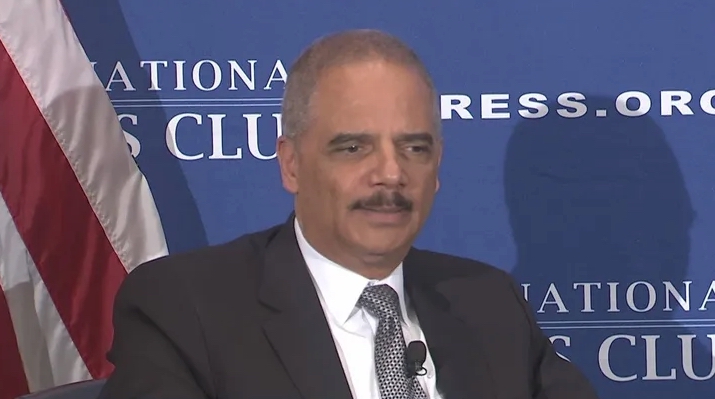In the Spotlight
Note: The following article was written by Sara Riggins and edited by Daren Bakst.
As election results came in on Tuesday night, all of the commentary had one focus: the outcome of the political races. Though much of that political commentary is likely to remain centered on the shift of power between Democrats and Republicans, there were also several noteworthy ballot initiatives across the country over which voters themselves had a direct say on numerous issues.
The following are some specific ballot initiatives of note:
Arizona: Ban Preferential Hiring — Approved
Voting 60% to 40%, Arizona voters supported a measure to prohibit the state from giving preferential treatment on the basis of race, sex, color, ethnicity, or national origin.
California: Legalizing Marijuana — Rejected
One of the biggest issues on the ballot in California was a measure to legalize marijuana use for persons 21 and older and to subject the sale of marijuana to taxes and regulation. Though the measure gained significant media attention, it was voted down 54% to 46%.
California: Proposition 23 (Suspending Climate Change Policies) — Rejected
A measure that would have suspended California’s strict carbon emissions standards until the state’s unemployment rate fell to 5% percent was rejected 61% to 39%.
California: Proposition 25 (Budget Approval Procedure Change) — Approved
As one of the most fiscally strapped states in the country, California voters supported a measure that now makes it easier for the state legislature to pass a state budget, lowering the threshold from a two-thirds majority to a simple majority, but there is concern that this measure could provide loopholes to the state’s two-thirds vote requirement for new taxes and tax increases.
California: Congressional Redistricting Panel — Approved
Although it gained less publicity, California voters approved an important measure that redirects the responsibility of congressional redistricting from the state legislature to an independent, 14-member commission.
California: Abortion/Defining Personhood — Rejected
A provision that would have redefined personhood by declaring every human to be a person from the "beginning of biological development" was voted down 70% to 30%.
Florida: Relax Class Size Limits — Rejected
Voters in Florida rejected a provision that would have relaxed limits on classroom size in public schools. The requirements (limiting preK-3 grade classes to 18 students, grades 4-8 to 22 students, and 9-12 to 25 students) were approved as a state constitutional amendment in 2002.
Illinois: Governor Recall — Approved
Voters approved a measure that allows for the recall of governors, supporting the measure 66% to 34%. In the wake of the Blagojevich debacle, it’s hard to say that comes as a surprise.
Michigan: Felon Politician Ban — Approved
Though Michigan wasn’t the only state to have a provision seeking to prohibit certain felons from obtaining elected office (a similar measure, though only applicable to sheriffs, was on the ballot here in North Carolina), Michigan’s proposal took it a step further. The measure, approved 75% to 25%, prohibits individuals convicted of certain felonies from serving in public office for 20 years.
Missouri: Proposition B ("Puppy Mill Cruelty Prevention Act) — Approved
Voters approved Proposition B, which increases regulation and tightens restrictions on dog breeders. In a state that has earned a reputation for being the country’s "puppy mill capital," this initiative spells good news for dog lovers everywhere.
Nevada: Weaken Eminent Domain Protections — Rejected
Voters rejected a measure that would have weakened the state’s eminent domain protections. If it would have been approved, the provision would have repealed a previously approved initiative commonly known as PISTOL ("The People’s Initiative to Stop Taking Our Land") and replace it with a weaker eminent domain amendment. Voters chose to keep PISTOL in place 67% to 33%.
North Carolina: No Felons for Sheriff — Approved
Here in North Carolina, voters overwhelmingly supported amending the state constitution to prohibit felons from running for sheriff. While this measure seems like a common-sense provision at face value, JLF Director of Legal and Regulatory Studies Daren Bakst explains why this initiative should have been turned down.
Oklahoma: English as Official Language — Approved
Voters approved a measure to make English the official state language 75% to 25%.
Oklahoma: Voter ID Required — Approved
A measure that requires government-issued photo identification in order to vote was approved 74% to 26%.
Oklahoma: Ban on Sharia Law and International Law — Approved
Voters approved 70% to 30% an initiative forbidding state courts from relying on Islamic Sharia law or on decisions from international courts when issuing rulings.
Oklahoma: Per-Pupil Spending Adjustments — Rejected
Voters rejected a measure that would have required the state to adjust per-pupil spending in relation to the average spending of neighboring states, including New Mexico, Colorado, Kansas, Arkansas, Missouri, and Texas.
Rhode Island: Changing State Name — Rejected
Voters in Rhode Island faced an interesting question, in deciding whether to formally change the state’s name from "State of Rhode Island and Providence Plantations" to "Rhode Island." Voters rejected the measure handily, 78% to 22%.
South Dakota: Smoking Ban — Approved
A measure that extends the state smoking ban to restaurants, bars, and casinos was approved 64% to 36%. You can read why such bans, including the one passed recently here in North Carolina, make for bad policy here.
Washington: State Income Tax on High Earners — Rejected
As one of the few states without income taxes, voters in Washington decided to keep that distinction, rejecting a measure that would have implemented income taxes for individuals earning over $200,000 (or couples earning over $400,000) and directed the additional revenue to state spending on health and education.
Finally, three states — Colorado, Oklahoma, and Arizona — took up the issue of health care, voting over whether to reject the federal mandate that requires individuals to purchase health insurance. Following Missouri’s lead from back in August of this year in voting not to comply with the individual mandate provision, both Oklahoma and Arizona voted for the measure to reject the federal mandate, while Colorado turned the measure down 53% to 47%.
For a more complete listing of initiatives that made it on the ballot on Tuesday, you can find more information here, here, or here.
Should the Government Be Able to Ban the Sale of Violent Video Games to Minors?
This week, the United States Supreme Court heard oral arguments on this very issue. Here’s a transcript from the proceedings.
The following are articles covering this very interesting and important case:
- Join the Supreme Court debate: Would you ban ultra-violent video games?
- Highlights From Supreme Court ‘Violent Video Games’ Case
- Supreme Court weighs: Should violent video games be sold to minors?
Quick Takes
NC GOP gets historic chance with redistricting
The Republican sweep at the North Carolina General Assembly means more than just control of the House and Senate for the next two years after being out of power almost continuously for more than a century.
The GOP can expand its influence in 2011 because it will get to redraw district boundaries for the Legislature and the state’s congressional seats based on this year’s census data. Their legislative leaders will get every opportunity to pen districts that would protect the majority through 2020.
NC State students protest graffiti in Free Expression Tunnel
Students on NC State’s campus are debating whether graffiti considered offensive by some is free expression of racism.
Earlier this week, someone painted a racist and homophobic drawing of President Obama in the tunnel that was built in 1939 to allow people to express their First Amendment rights.


